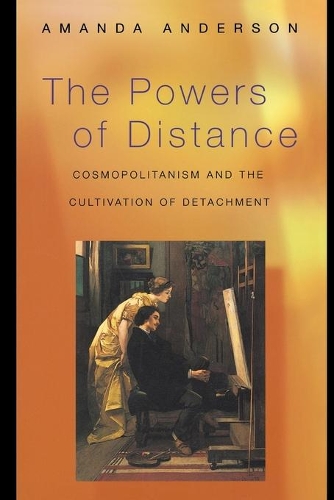
The Powers of Distance: Cosmopolitanism and the Cultivation of Detachment
(Paperback)
Publishing Details
The Powers of Distance: Cosmopolitanism and the Cultivation of Detachment
By (Author) Amanda Anderson
Princeton University Press
Princeton University Press
30th October 2001
United States
Classifications
Professional and Scholarly
Non Fiction
Cultural studies
306.094109034
Physical Properties
Paperback
208
Width 152mm, Height 235mm
312g
Description
Combining analysis of Victorian literature and culture with forceful theoretical argument, this work examines the progressive potential of those forms of cultivated detachment associated with Enlightenment and modern thought. Amanda Anderson explores a range of practices in nineteenth-century British culture, including methods of objectivity in social science, practices of omniscience in artistic realism, and the complex forms of affiliation in Victorian cosmopolitanism. Anderson demonstrates that many writers - including George Eliot, John Stuart Mill, Charlotte Bront , Matthew Arnold, and Oscar Wilde - thoughtfully address the challenging moral questions that attend stances of detachment. In so doing, she offers a revisionist account of Victorian culture and a tempered defense of detachment as an ongoing practice and aspiration. The text illuminates its historical object of study and provides an example for its theoretical argument, showing that an ideal of critical detachment underlies the ironic modes of modernism and postmodernism as well as the tradition of Enlightenment thought and critical theory. Its understanding of detachment and cultivated distance, together with its hi
Reviews
"The Powers of Distance ... consistently delivers the double payoff of enriched views on both Victorian texts and contemporary debates."--Victorian Studies
Author Bio
Amanda Anderson is Professor of English at The Johns Hopkins University and the author of Tainted Souls and Painted Faces: The Rhetoric of Fallenness in Victorian Culture.
